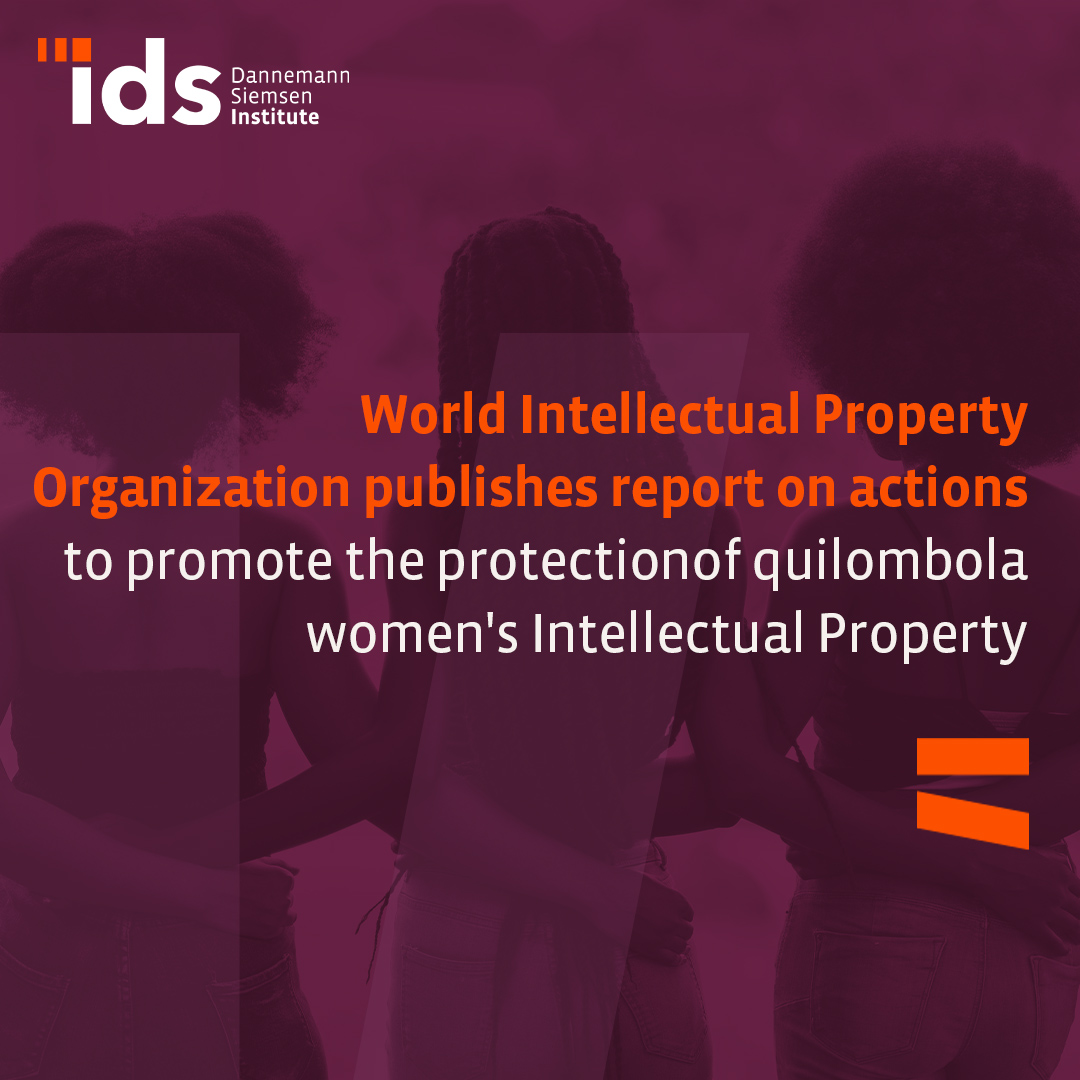07 de outubro de 2024
Share
World Intellectual Property Organization publishes report on actions to promote the protection of quilombola women’s Intellectual Property
On September 14, the World Intellectual Property Organization (WIPO) published a report entitled “Intellectual Property (IP) for Quilombola Women: Promoting Cultural Heritage and Economic Empowerment”. The document, developed in partnership with the Secretariat for Copyright and Intellectual Property (SDAI) of the Ministry of Culture (MinC) and the Palmares Cultural Foundation (FCP), aimed to provide a comprehensive overview of the importance of intellectual property (IP) for quilombola communities, highlighting its role in preserving cultural heritage and strengthening the economy of these communities. The project targeted quilombola women, offering training focused on IP tools that could add value to their products and protect their traditional knowledge.
The main objective of the report is to identify the state of women’s production within the communities covered, to study the degree of IP knowledge of these women, to identify products (realized and potential) linked to traditional cultural knowledge and expressions, as well as their characteristics and production process, and to map the cultural potentialities that can add value to the products. To this end, the document detailed the pilot project that sought to train 50 women from four quilombola communities: Engenho da Ponte, in Cachoeira (BA); Morro do Miriqui, in Ilhéus (BA); Baús, in Araçuaí (MG); and Tocoiós, in Francisco Badaró (MG). The workshops, with a participatory methodology adapted to each community, were structured around three fundamental pillars: memory, territory and identity. This approach allowed the participants to develop strong brand identities and learn how to expand their markets, driving sustainable economic growth.
In the second part of the report, the main objectives of the project are highlighted. The use of IP tools, such as collective brands, copyright and geographical indications, proved essential for preserving the quality of quilombola products and strengthening their traditions. The document highlights traditional products such as cotton weaving in Tocoiós, palm oil and fashion in Engenho da Ponte, honey production in Baú and tourism associated with fruit production in Morro do Miriqui, which have gained greater visibility and added value. In addition to material products, the project also focused on preserving intangible cultural expressions, such as “cantigas de roda”, “batuque” and “esmola cantada”, which represent the cultural diversity of the communities.
The third part of the document deals with the process of socio-cultural diagnosis of the communities, called mapping of cultural potential and assessment of needs in relation to IP. This mapping guided the implementation of adapted training workshops, focusing on: general IP knowledge, collective brands and geographical indications and traditional knowledge. According to the report, this direct interaction with the communities made it possible to better understand their social and cultural dynamics, resulting in training aligned with local specificities. There is also another part of the document dedicated to explaining the didactic strategies guiding the workshops, such as storytelling, sharing experiences, listening to traditional songs and showing educational videos.
With regard to protecting the intangible assets of these communities, the report emphasizes the importance of IP tools for promoting the autonomy and economic empowerment of quilombola women. The use of collective brands was one of the mechanisms most highlighted, since it preserves the authenticity and quality of traditional products, as well as protecting the communities’ ancestral knowledge.
Finally, the report includes general and specific recommendations for expanding the project to other quilombola communities and encouraging the creation of knowledge exchange networks between communities. The recommendations aim to foster collaboration and continuous innovation between the different quilombola groups, promoting the long-term sustainability of the project. The report also suggests developing strategies to engage young people in the communities, ensuring the intergenerational transmission of knowledge and the preservation of collective intangible assets, through collective brands, copyrights and geographical indications. Among the suggestions are the implementation of infrastructure for internet access, which is essential for expanding markets and connecting communities; the continuation of IP workshops; and the installation of a community library. It is also recommended that skills such as racial literacy, environmental sustainability and the right to the city be incorporated.
The report can be accessed via the link: Propriedade Intelectual (PI) para Mulheres Quilombolas: Promovendo o Patrimônio Cultural e o Empoderamento Econômico
Note: For quick release, this English version is provided by automated translation without human review.
